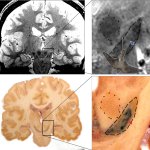
News • Potential of nigrosome imaging
Parkinson's: Misconception of 'swallow-tail'-sign rectified
A new understanding of the 'swallow-tail', an anatomical landmark in the brain, could pave the way for earlier detection of Parkinson's disease.

A new understanding of the 'swallow-tail', an anatomical landmark in the brain, could pave the way for earlier detection of Parkinson's disease.
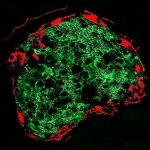
A team from Geneva has discovered a molecule that can identify the development of diabetes before the first symptoms appear.
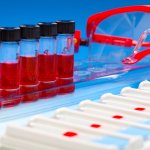
The development of a simple blood test for glioblastomas could mean earlier diagnosis and more effective and personalised treatment options against the most common type of malignant brain cancer.

A sensor identifies misfolded protein biomarkers in the blood. This offers a chance to detect Alzheimer's disease before any symptoms occur. Researchers intend to bring it to market maturity.

Patients are 20% less likely to die of sepsis because a new AI system developed at Johns Hopkins University catches symptoms hours earlier than traditional methods, an extensive hospital study shows.
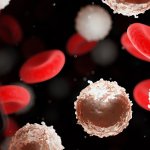
A blood test could predict risk of developing leukaemia in the elderly population years in advance by identifying changes in blood cell production, according to new research.

Colonoscopies performed with AI support may yield an increase in the overall rate of detection of adenoma, or cancerous and precancerous polyps, by 27% in average-risk patients, according to new data.
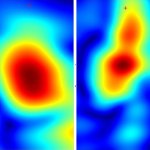
A new handheld device has been developed to painlessly identify skin cancers using millimeter-wave imaging. This could slash the rate of unnecessary biopsies.
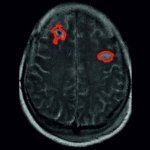
Researchers from Charité – Universitätsmedizin Berlin have shown that massive electrochemical waves in the brain act as a marker announcing an impending ischemic stroke.

Sleep problems could hint at a heightened risk of heart disease, caution experts at the ESC Preventive Cardiology 2022 congress.

Liquid biopsy performed on serum samples taken from breast cancer patients can provide increasingly accurate information on progression and enable earlier detection of recurrence.
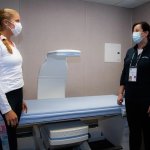
Hologic and the Women's Tennis Association (WTA) kicked off a multi-year partnership, launching a joint vision to achieve greater wellness and equality for women.

A mathematical analysis of data obtained with a MRI approach can identify brain cell damage in people at early stages of Alzheimer's.

Since its introduction around 60 years ago, the screening of newborn babies for immune, hormone and metabolic disorders has prevented many people from experiencing severe disease progression. The scope of systematic early testing has been significantly enhanced through mass spectrometry (MS). In our interview, Professor Uta Ceglarek, one of the driving forces behind the introduction of MS…

An innovative collaboration has been formed in the UK between academic researchers and industry to develop a rapid integrated liquid biopsy platform for early detection of recurrent breast cancer. Breast cancer specialists Professor Charles Coombes, who is Professor of Medical Oncology at Imperial College London (ICL), and Professor Jacqui Shaw, Head of the Department of Genetics and Genome…
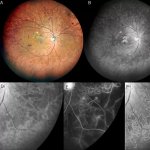
Researchers from Tokyo Medical and Dental University (TMDU) demonstrate a thorough and non-invasive imaging technique to identify areas of the eye affected by diabetic retinopathy (DR), a progressive eye disease associated with diabetes and a leading cause of blindness. The researchers have found that blue light can be used to probe the depths of the eye and uncover areas affected by DR.

Together with Imperial College London (‘Imperial’), molecular diagnostics company DNAe has been awarded a UK Knowledge Transfer Partnership (KTP) by Innovate UK to support development of its next generation sequencing (NGS)-based diagnostic platform for use in cancer monitoring. The KTP program connects innovative businesses with academic experts who can help them deliver their ideas. This…
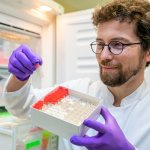
Autoimmune hepatitis (AIH) is a chronic liver inflammation that is triggered by an immunological malfunction. In this case, the immune system falsely recognises the patient's own liver cells as "foreign to the body". The symptoms of this rare liver disease are unspecific, and the exact cause is not yet known. If left untreated, AIH can lead to abnormal scarring (fibrosis) of the liver,…
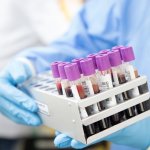
Researchers at the DZNE and the University Medical Center Göttingen (UMG) have identified molecules in the blood that can indicate impending dementia. Their findings, which are presented in the scientific journal “EMBO Molecular Medicine”, are based on human studies and laboratory experiments. Various university hospitals across Germany were also involved in the investigations.
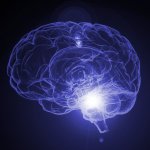
A miniscule area in the brain, known as the locus coeruleus (LC), or blue spot, can help to identify an increased risk of Alzheimer’s disease at a very early stage. The LC is hidden deep in the brainstem and can only be detected with advanced MRI equipment. Heidi Jacobs (Maastricht University/Harvard Medical School) used MRI scans to show that the tau protein can begin to spread in the LC three…
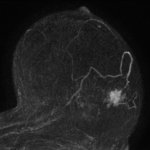
New research indicates that MRIs are cost effective for detecting breast cancer for women with very dense breasts detected by mammography. About 10% of women have extremely dense breasts, and current mammography screening guidelines do not recommend additional imaging tests unless there is a strong family history or genetic risk for breast cancer. Such women face two problems. They have increased…
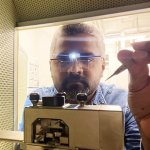
If the suspicion of Alzheimer's disease creeps up, those affected must prepare themselves for lengthy and complex procedures until the case is clear. A team from Empa and the Cantonal Hospital of St. Gallen is now in the process of developing a blood test that will enable a reliable diagnosis using atomic force microscopy (AFM).

Although artificial intelligence (AI) tools and smartphone apps that help identify suspicious moles and potential skin cancers are starting to proliferate, dermatology informatics has far to go before becoming a clinically adoptable technology. Many challenges need to be resolved, not least of which is the need for more image data representing people of colour.

Artificial intelligence (AI) will fundamentally change medicine and healthcare: Diagnostic patient data, e.g. from ECG, EEG or X-ray images, can be analyzed with the help of machine learning, so that diseases can be detected at a very early stage based on subtle changes. However, implanting AI within the human body is still a major technical challenge. TU Dresden scientists at the Chair of…
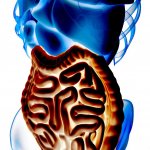
The risk of colorectal cancer can be predicted more accurately by determining seven blood-based micro-RNAs (miRNAs) than by using traditional methods - and can be done so many years before a diagnosis is made. In a current study, researchers from the German Cancer Research Center and the National Center for Tumor Diseases (NCT) Heidelberg show that miRNA profiles provide greater predictive…